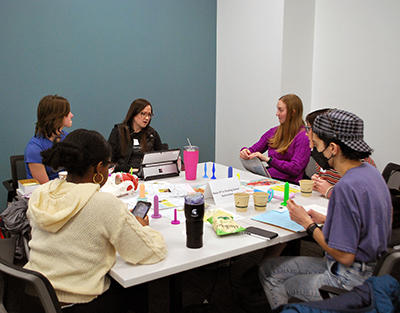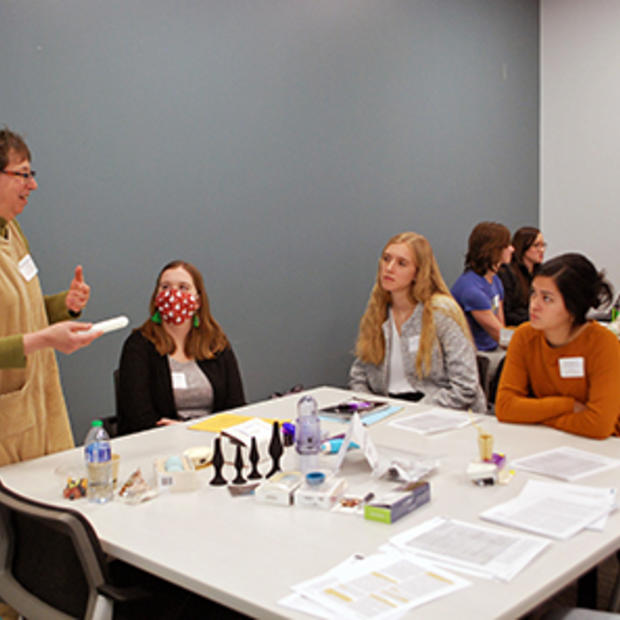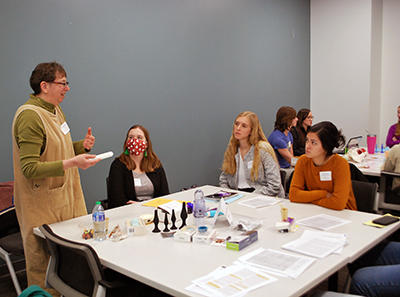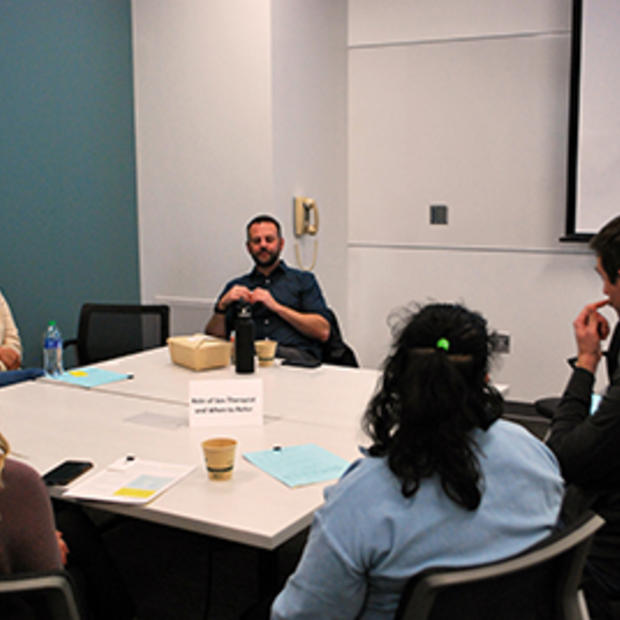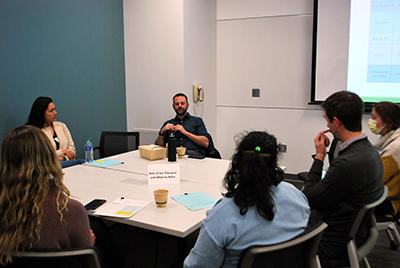Sexual Medicine
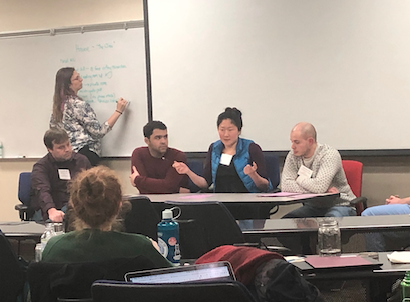
Dates:
- Thursday, June 20, 2024 (8:00 a.m.– 4:30 p.m.)
- Thursday, December 19, 2024 (8:00 a.m.-4:30 p.m.)
Location: Health Sciences Education Center
The purpose of this interactive course is to establish a framework in which to approach sexual health beyond pregnancy/contraception and sexually transmitted infections.
Learners will:
- Understand how sexual health, gender identity, and general health intersect
- Learn how to evaluate and treat common sexual dysfunctions
- Become familiar with interdisciplinary sexual medicine interventions.
- Improve skills in sexual history taking and incorporating sexual orientation and gender identity information in the EMR
- Gain practical knowledge of sexual aids and medical devices
- Learn how to incorporate sexual medicine into a primary care practice
Registration is for non-University of Minnesota family medicine residents, medical students, and community physicians or healthcare professionals. Fees include tuition, syllabus, and access to online resources.
Contact:
- Heidi Cerdas Monge, MBA, hcerdasm@umn.edu
Course Learning Objectives
Taking a Sexual History
- Recognize when and why to take a sexual history
- Identify at least three appropriate questions to ask patients about their sexual history
- Determine barriers to taking sexual history and how to deal with them
Sexual Orientation & Gender Identity
- Recognize the spectrum of gender identity, sexual orientation, and sex at birth
- Describe the effects of minority stress on sexual and gender minorities
- Determine how to incorporate SO/GI information into your clinical practice
Male Sexual Dysfunction
- Identify the prevalence of disorders of erectile function and ejaculatory function in men
- Describe the evaluation process and treatment options for these disorders
- List guidelines for initiating testosterone replacement therapy in cisgender men
Female Sexual Dysfunction
- Illustrate and utilize PLISSIT model for addressing sexual health concerns
- Identify common medications that may negatively impact sexual function
- List the three most prevalent female sexual dysfunctions
- Describe the evaluation and treatment of low libido in women
Interdisciplinary Interventions in Sexual Health
- Describe the role of pelvic physical therapy in treating sexual dysfunction
- Identify the differences between types of lubricants and their advantages/disadvantages
- List various sexual aids or toys and their uses in improving sexual function
- Recognize the role of sex therapy in treating sexual dysfunction and improving relationships
Sexual Minority Health
- Identify health concerns that are increased or specific to sexual minority men and women
- Demonstrate familiarity with HIV/STI risks for sexual minority men and women
- Describe parenting options for sexual minority couples
Transgender Health
- Recall the role of and challenges to the primary care provider in transgender healthcare
- Demonstrate familiarity with the basics of transgender hormone therapy and surgical interventions
- Summarize the concept of transgender-specific health maintenance across the lifespan
Incorporating Sexual Medicine in Primary Care
- Consider how you will incorporate sexual medicine into your future practice
- Identify how other providers have overcome time pressure to address sexual health with their patients
- Describe cross-cultural barriers that providers have encountered and possible solutions
“I learned a great deal. This presentation made me much more comfortable with speaking to my patients about this subject.”
Photo & Video Release
We may take photos and/or videos of instructors and learners at our programmatic courses, and these may appear in the department’s and/or University of Minnesota’s marketing and promotional materials (e.g., brochures, posters, social media, websites, etc.). Your attendance constitutes your permission and consent for photography and video subsequent usage. If you do not want to be photographed or filmed, please let us know by contacting Heidi Cerdas Monge, MBA, 612-625-0953, hcerdasm@umn.edu.

